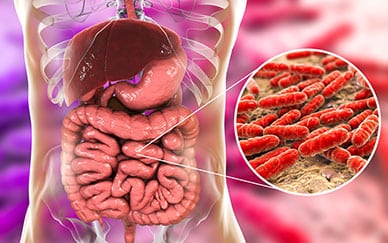A recent study led by a team of Japanese researchers and published in the British Medical Journal adds to mounting evidence that adequate levels of vitamin D may provide protection against cancer. The research was conducted by a team from the National Cancer Center in Tokyo and was the first study to investigate the link between vitamin D and cancer within an Asian population.
Vitamin D and Cancer: Is There a Correlation?
Vitamin D is an essential nutrient that our bodies require for bone health and immune function. While some experimental evidence exists suggesting an association between vitamin D and cancer risk, the majority of the research has been carried out on American and European populations. Evidence regarding Asian populations is still limited.
According to the researchers, “given that vitamin D concentrations and metabolism vary substantially by race/ethnicity, whether similar associations would also be observed in non-Caucasian populations remains to be clarified.” What that in mind, researchers aimed to evaluate the association between vitamin D levels and the risks of cancers in an Asian population.
Large Study Examines Association Between Vitamin D and Cancer Risk.
In a recent study, researchers aimed to evaluate the association between vitamin D levels and the risks of cancers using a final cohort of 33,736 participants who were between the ages of 40 and 69. At the beginning of the study, the participants provided detailed information on their lifestyle and medical history. Blood samples were assessed for vitamin D levels, and the participants were split into four groups, ranging from lowest to highest vitamin D levels. The participants were monitored for around 15 years while researchers examined the likelihood of cancer diagnosis. The team adjusted for certain risk factors such as age, body mass index and physical activity as well as cigarette, alcohol and dietary intake. After analyzing the data, researchers discovered that those with the highest levels of vitamin D had a 22 percent lower chance of being diagnosed with cancer.
When looking at individual cancers, there was no statistically significant evidence of lower cancer rates, with the exception of liver cancer. “People with the highest vitamin D levels were 55 percent less likely to be diagnosed with liver cancer than those with the lowest,” according to the study. There was some evidence to suggest that vitamin D levels may affect breast cancer occurrence before menopause, but the researchers state that “although of interest, this hypothesis should be viewed with caution and needs further confirmatory evidence.”
While the results seem to support the hypothesis that higher vitamin D levels may protect against cancer, the researchers noted that “the lower risk associated with higher circulating vitamin D concentration seemed to show a ceiling effect,” which suggests that above a certain level of vitamin D, there are no additional benefits. “Future studies are needed to clarify the dose-response pattern and the optimal concentrations for cancer prevention,” they concluded.
Understanding the Fundamentals of Vitamin D
 Vitamin D is one of the micronutrients that are critical to human survival. It is a fat-soluble vitamin that differs from most other vitamins in that our bodies are able to produce most of what we need with regular exposure to sunlight. Vitamin D functions as a pro-hormone: It modulates hormonal balance and immune response regulation in the body. Vitamin D serves several important functions in the body. It’s essential for bone maintenance. Because vitamin D promotes calcium absorption and enables the mineralization of bone, it’s vital for bone growth and regeneration.
Vitamin D is one of the micronutrients that are critical to human survival. It is a fat-soluble vitamin that differs from most other vitamins in that our bodies are able to produce most of what we need with regular exposure to sunlight. Vitamin D functions as a pro-hormone: It modulates hormonal balance and immune response regulation in the body. Vitamin D serves several important functions in the body. It’s essential for bone maintenance. Because vitamin D promotes calcium absorption and enables the mineralization of bone, it’s vital for bone growth and regeneration.
Outside of its essential functions in bone, heart, and immune health, vitamin D boasts a few other surprising benefits:
- regulates hormones and influences mood
- helps modulate blood sugar levels and may protect against diabetes
- supports heart health and helps protect against heart disease
- improves concentration, learning and memory functions
Vitamin D Deficiency
According to data from 2011, approximately 40 percent of adults in the US are deficient in vitamin D. People with darker skin, those who regularly wear sun protection, people who limit their outdoor activity or those who live in areas prone to heavy air pollution are most at-risk for a vitamin D deficiency. Age, weight, diet and certain disorders also play a contributing role.
A vitamin D deficiency can result in a loss of bone density that contributes to osteoporosis and stress fractures. Because vitamin D aids in cell replication, a deficiency may play an important role in the development of certain autoimmune conditions. A severe vitamin D deficiency can lead to other diseases such as rickets in children and osteomalacia in adults.
The symptoms of a vitamin D deficiency can be hard to distinguish because of their sometimes subtle nature. Some of the more notable symptoms include:
- bone pain and muscle weakness
- unusual fatigue, achiness and a general sense of malaise
- an increase in illnesses or infections
- weak bones (osteopenia) more prone to fractures
Sources of Vitamin D
Often referred to as the sunshine vitamin, the body’s main source of vitamin D is sunlight. Our bodies naturally produce it from cholesterol when our skin is exposed to sunlight. Few foods naturally contain significant amounts of vitamin D, but there are a handful of vitamin D-rich food sources available. Some fatty fish, such as salmon, mackerel, and cod liver oil, naturally contain high amounts of vitamin D, while other products, such as cereals, milk, yogurt and juices, are fortified with added vitamin D.
It can be difficult to get a sufficient amount of vitamin D each day through sun exposure and food intake alone, so it’s generally recommended to take a supplement that contains vitamin D. The recommended daily allowance of vitamin D is between 400 to 800 IU/day for adults, however, research suggests that this level may be too low to see the therapeutic or preventative benefits of its usage. Clinical trials have indicated that the lowest effective dose range is 1,000-2,000 IU/day. The safe upper limit in Canada and the United States is 4,000 IU/day.
 Researchers in the study also looked at genetic variations and found that people better at regulating fatty acids possessed certain variations that were associated with a lowered risk of MS. However, that “does not mean that people with a certain genotype need to eat more fish than others to get the same health benefits,” explained Dr. Langer-Gould. The team hopes to replicate their findings in further studies.
Researchers in the study also looked at genetic variations and found that people better at regulating fatty acids possessed certain variations that were associated with a lowered risk of MS. However, that “does not mean that people with a certain genotype need to eat more fish than others to get the same health benefits,” explained Dr. Langer-Gould. The team hopes to replicate their findings in further studies. Type 2 diabetes is a serious illness in which the body becomes resistant to insulin, the hormone needed to let glucose out of our bloodstream and into our cells. People gradually become overweight from this excess sugar even as some cells starve for energy. The excess sugar in the bloodstream can lead to cardiovascular disease, nerve damage, blindness and, over time, even cause death.
Type 2 diabetes is a serious illness in which the body becomes resistant to insulin, the hormone needed to let glucose out of our bloodstream and into our cells. People gradually become overweight from this excess sugar even as some cells starve for energy. The excess sugar in the bloodstream can lead to cardiovascular disease, nerve damage, blindness and, over time, even cause death. Our gut bacteria contribute to health in a variety of ways. First, they help to breakdown nutrients so they can be more easily absorbed and metabolized. Some nutrients, such as vitamin K, cannot be absorbed without the right bacterial influence. Second, our gut bacteria release different amino acids and bioactive substances that can have a huge impact on health. In particular, many of these substances can either increase or reduce
Our gut bacteria contribute to health in a variety of ways. First, they help to breakdown nutrients so they can be more easily absorbed and metabolized. Some nutrients, such as vitamin K, cannot be absorbed without the right bacterial influence. Second, our gut bacteria release different amino acids and bioactive substances that can have a huge impact on health. In particular, many of these substances can either increase or reduce  Vitamin D is an essential vitamin, which means that it is needed to sustain human life yet is not made by our bodies. Unlike other nutrients, it is very difficult to get enough of this vitamin even from a healthy, well-rounded diet. Throughout human history, most of our vitamin D has come from the sun. When light interacts with our skin cells, vitamin D is produced. Modern people, however, take steps to actively avoid sun exposure. As a result,
Vitamin D is an essential vitamin, which means that it is needed to sustain human life yet is not made by our bodies. Unlike other nutrients, it is very difficult to get enough of this vitamin even from a healthy, well-rounded diet. Throughout human history, most of our vitamin D has come from the sun. When light interacts with our skin cells, vitamin D is produced. Modern people, however, take steps to actively avoid sun exposure. As a result,  Another study from the University of Bergen in Norway further emphasizes the importance of this nutrient. This study, published this month in The Journal of Clinical Endocrinology & Metabolism, found that that taking
Another study from the University of Bergen in Norway further emphasizes the importance of this nutrient. This study, published this month in The Journal of Clinical Endocrinology & Metabolism, found that that taking  Most of the research on gut bacteria and the immune system have focused on the interaction between
Most of the research on gut bacteria and the immune system have focused on the interaction between  Many people get confused about the different terms used in relationship to GI flora. In general, the term probiotics refers to bacteria known to have beneficial effects on our health. Prebiotics, on the other hand, are foods and substances that feed these bacteria and help them to flourish. In general, soluble fiber appears to be the key food for the bacterial species that we want to thrive. Foods that are naturally high in soluble fiber are not common in our diets, so a supplement may be helpful to many people trying to restore healthy GI flora.
Many people get confused about the different terms used in relationship to GI flora. In general, the term probiotics refers to bacteria known to have beneficial effects on our health. Prebiotics, on the other hand, are foods and substances that feed these bacteria and help them to flourish. In general, soluble fiber appears to be the key food for the bacterial species that we want to thrive. Foods that are naturally high in soluble fiber are not common in our diets, so a supplement may be helpful to many people trying to restore healthy GI flora.